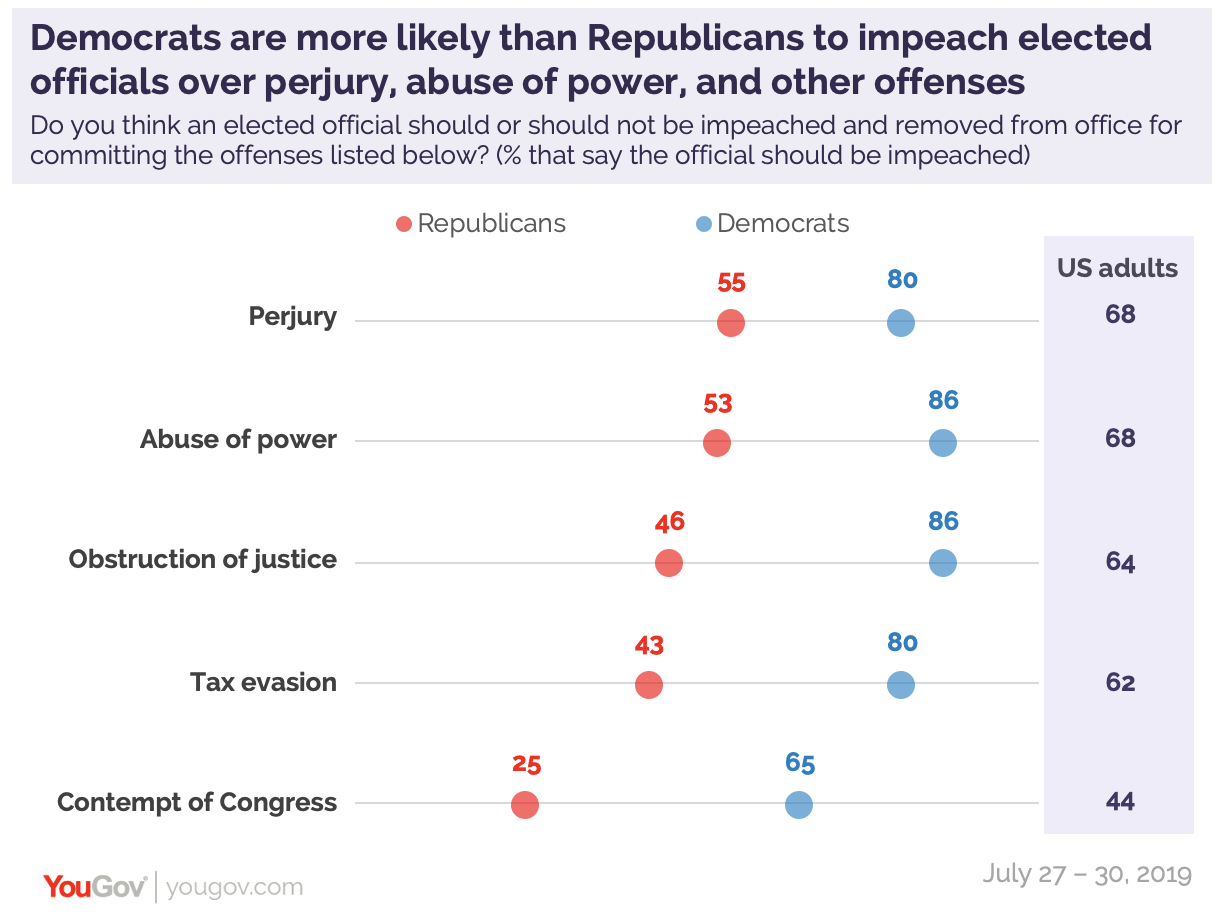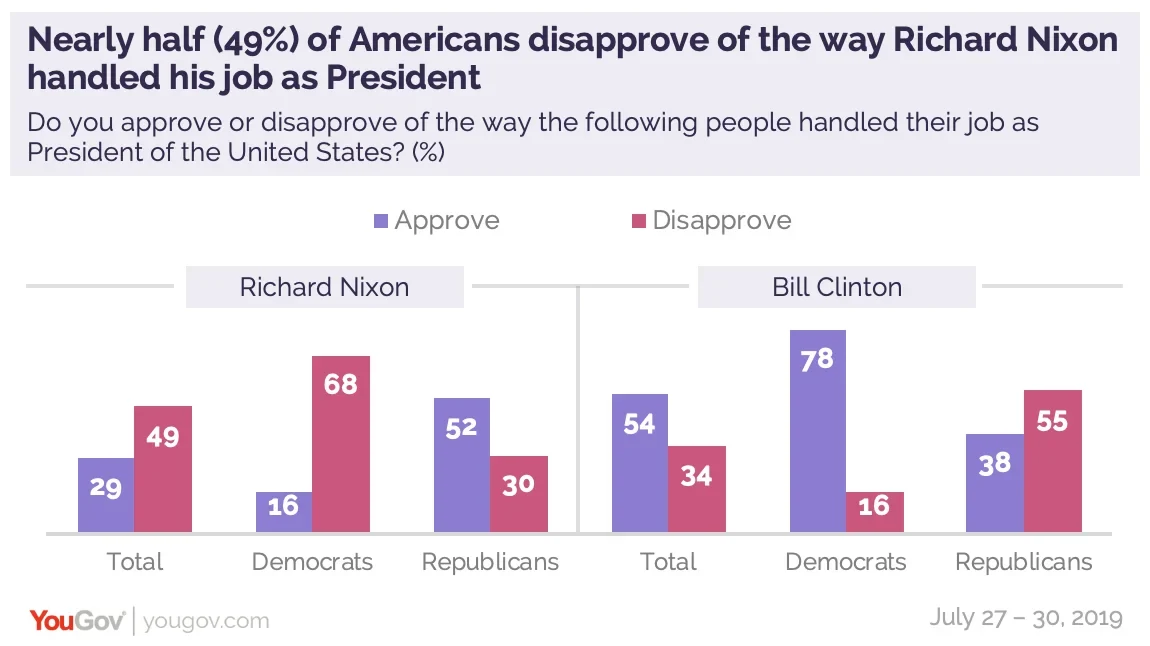President Richard Nixon resigned on August 8, 1974. His Gallup approval rating 45 years ago was only 24 percent — among the lowest ever recorded. He isn’t doing much better today. In the latest Economist/YouGov Poll, just 29 percent of Americans approve of the way President Nixon handled his job.
Nixon’s approval rating sits at 30 percent among those who lived through his resignation (Americans aged 45 and over; 54% disapprove). President Nixon’s resignation came after the Judiciary Committee in the House of Representatives passed three articles of impeachment, but before the full House would vote on them. A majority of Republicans today approve of President Nixon’s handling of his job. In 1974, before his resignation, half of Republicans continued to approve of the then-President.
Nixon isn’t seen as a great or near great President by Republicans today. Most say he was, at best, average (most Democrats rate him as below average or as a failure). Impeachment hasn’t tarnished the other modern president to be impeached (but not removed from office), Bill Clinton. A majority approves of how he handled his presidency, though sizable party differences remain.
Clinton’s rating today is lower than it was during the impeachment battle of 1998-1999, which helped raise Clinton’s image with the public. His highest Gallup approval rating (73 percent approve) was measured at the time the House of Representatives passed two articles of impeachment. When he left office at the end of his second term, 68 percent of the public approved. Today, most Democrats rate him as average or better; just under half of Republicans call him below average or a failure.
The Nixon resignation anniversary provides some insight on what the public regards as impeachable offenses. The Nixon articles of impeachment passed by the Judiciary Committee focused on obstruction of justice, abuse of power and lack of cooperation with Congress (the two articles that did not pass involved campaign financing and tax evasion). For Clinton, his impeachment articles were about alleged perjury and contempt of Congress.
For most Americans, perjury, obstruction and abuse of power should be impeachable offenses. So should tax evasion. There is less support for impeachment when it comes to contempt of Congress. On all of these questions, Republicans are less likely than Democrats to label them as impeachable offenses.
Should Richard Nixon and Bill Clinton have been impeached? Yes, when it comes to Nixon; 60 percent say he should have been impeached and removed from office, 15 percent say no. Even Republicans are more likely to agree than disagree. For Clinton, the verdict is mixed and highly partisan. More than half (53%) of Republicans say he should have been impeached. One in two (55%) Democrats say he should not have been impeached.
But nowhere is the party division more clear than when it comes to the current President. Overall, more Americans vote “no” on impeaching President Donald Trump. But 63 percent of Democrats say Congress should; eight in 10 (82%) Republicans say no.
Read the full toplines and tables results from the latest Economist/YouGov poll here
Photo: Getty









